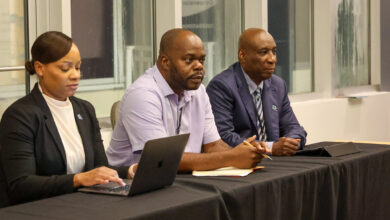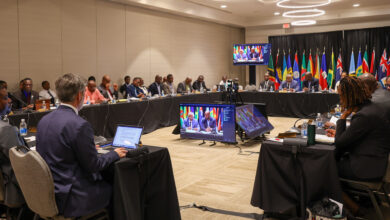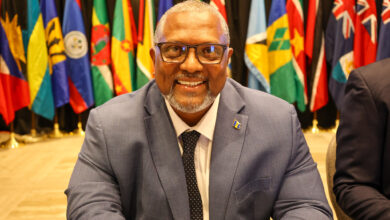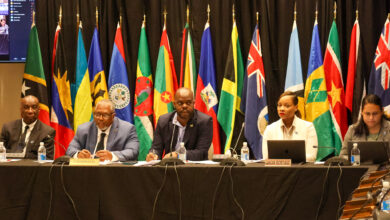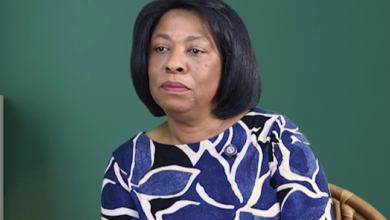Mr. Chairman
Hon. Robert Persaud, Minister of Agriculture, representing the Prime Minister of Guyana
Hon. Allen Chastanet, Minister of Tourism of Saint Lucia and Representative of the Prime Minister of Saint Lucia, Lead Head of Government in the Quasi-Cabinet with responsibility for Sustainable Development
Ministers of Environment of CARICOM Member States
Assistant Secretary-General Irwin LaRocque and other members of Staff of the CARICOM Secretariat
Other Government Officials
Representatives of Agencies within the UN System
Representatives of Regional Institutions, International and other Inter-Governmental Organisations and Civil Society Organisations
Representatives of the media
Ladies and Gentlemen
It is indeed a veritable pleasure for me as Secretary-General of the Caribbean Community (CARICOM) to join the Honourable Minister of Agriculture of Guyana in welcoming you all to this Twenty-fifth Special Meeting of the Council for Trade and Economic Development (COTED). It is even more pleasurable to be afforded the opportunity to address the following remarks on the Environment.
This Special Meeting of Ministers with responsibility for the Environment is long long overdue. Despite numerous efforts over many years to convene such a meeting, with a view to having a comprehensive discussion on a number of key issues and to establish critical policies relevant to the sustainable development of our Community, we have consistently failed.
And yet, as we sought unsuccessfully to find agreement and support for such a meeting, there were countless jolting events within and outside our Region which were stark reminders of the challenges we face in managing the environment, which is of course a most critical element in our pursuit of sustainable development. For example, who can forget the 2005 floods in Guyana? I certainly can’t. Who can forget Hurricane Ivan in Grenada or Hurricanes Frances and Jeanne in the Bahamas, Haiti and the Dominican Republic? I certainly can’t. And, more recently in 2007, who can forget Hurricane Dean? I can’t, if only for the fact that, among other things, it resulted in the postponement of the Jamaica elections!
Further afield there was the haunting imagery of the victims of famine in Sub-Saharan Africa, the perils of inhabitants of South East Asia in the wake of their tsunami and the victims of Hurricane Katrina in New Orleans, USA. All of these, within the Region and beyond, were events which should have served to hasten us to the meeting table. But nothing before its time and we are here today.
The above cited illustrations of natural phenomena have been compounded by industrial and human induced degradation of our environment. Against this background, I am happy that this Meeting will deliberate on the development of a Caribbean Community Environmental and Natural Resource Policy Framework and related issues such as climate change, disaster management, renewable energy, water resource management and the management of marine resources and indeed food supplies find a relevant place in these discussions.
These are all critical issues that affect the lives of the people of our Community, which comprises Small Island Developing and Low-Lying Coastal States. It can also be reasonably expected that the policies, plans and programmes which are initiated in the context of such a Framework will have a beneficial impact on the successful implementation of the CARICOM Single Market and Economy (CSME).
The Caribbean Community Environmental and Natural Resource Framework must develop a strategic approach which while optimising the use of the Region’s modest resources protects the environment. The need for improved institutional capacity to address this issue must be recognised and pursued.
In that regard, the Secretariat was pleased to be the host of a meeting of Community Institutions last October. Among those in attendance were the Caribbean Community Climate Change Centre (CCCCC), the Caribbean Disaster Emergency Response Agency (CDERA) and the Caribbean Institute of Meteorology and Hydrology (CIMH) three organisations which were encouraged to strengthen their linkages to combat the challenges posed to the environment and ultimately to the sustainable development of the Community by climate change and natural disasters.
This Meeting provides a further and perhaps even more fruitful opportunity for the renewal of relationships and the development of closer linkages and networks between regional institutions and government officials, as we work towards the conservation, management and sustainable use of our physical, human and other resources. I would like to urge Member States to engage in multi-disciplinary efforts in order to work out solutions to the many complex developmental issues which beset the Region at this time.
Mr. Chairman, Ladies and Gentlemen, I would also like to take this opportunity, to acknowledge the sterling contribution which Caribbean professionals have contributed to global environmental management. In particular, I congratulate the team of technical persons who worked tirelessly on the Inter-governmental Panel for Climate Change and who have been duly recognized for their contribution to this process with the award of a Nobel Peace Prize.
I refer to Drs. Trotz, Chen, Agard, and Nurse. Congratulations are also in order for Senator Angela Cropper on her appointment to the post of Deputy Executive Director of the United Nations Environment Programme. Throughout her career, Senator Cropper, once a Director in the CARICOM Secretariat, has made lasting contributions to environmental management in the Region, such as the Caribbean Sea Assessment for the Millennium Ecosystem Assessment. It is clear therefore, that the Region is not without world class human resources in this field of endeavour. We therefore have no excuse if we do not lend our efforts to this struggle to manage our environment.
Mr. Chairman, Ladies and Gentlemen, against this background and cognisant of this fact, I trust that this Meeting will help us to more deeply focus attention and strengthen our commitment to the incorporation of environmental issues into our national and regional development policy and planning processes. Too often, other developmental issues are given priority. I want to take this opportunity to stress that the Community needs to take steps at the national and regional levels to improve education and awareness among the population so that they can better appreciate the linkages between the environment and the quality of life not least of their very sustenance. Against this background, this meeting needs to draw on previous work such as the Barbados Plan of Action, the Mauritius and Bali declarations and the work of our own officials over the last few days.
In closing, I look forward to the vigorous participation of all in this Meeting, conscious that we are working towards the objective of building A Community for All, through improved resilience of all systems and a reduction of vulnerability to natural hazards and external shocks. With these remarks I wish you every success in your deliberations.
Thank you.

